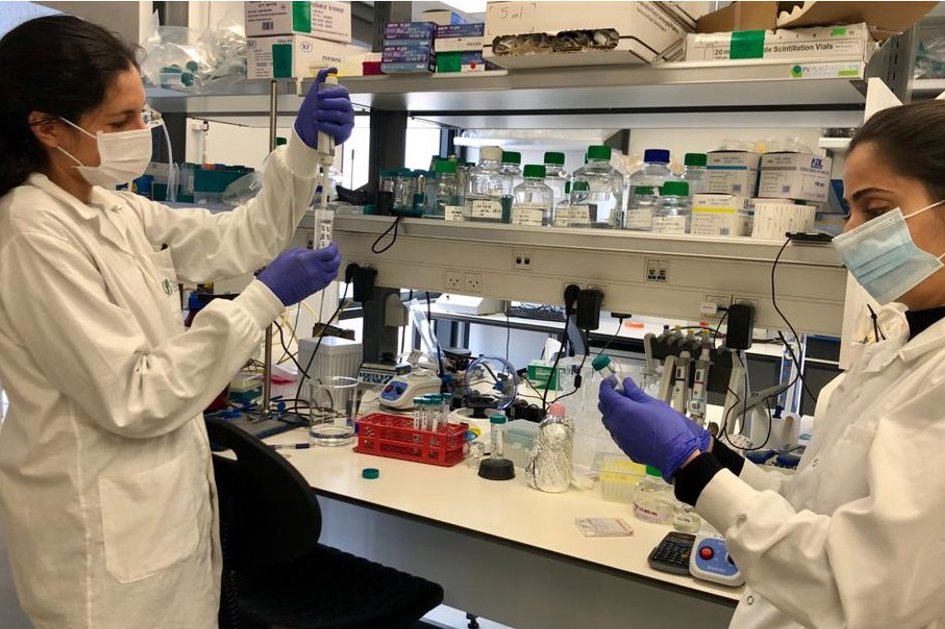Israeli bioprinting firm CollPlant has reported an annual revenue increase of 165% within its FY 2020 financial results.
Over the course of 2020, the company generated $6.1 million in revenue, 165% more than the $2.3 million reported during 2019. CollPlant’s revenue rise can largely be attributed to the $3.6 million it received as part of its recently-terminated licensing agreement with United Therapeutics, in which its bio-inks were utilized to 3D bioprint kidney scaffolds.
However, despite the company’s recent growth, and the announcement of a $103 million contract from AbbVie subsidiary Allergan Aesthetics, its shares have fallen 4% since the results’ publication. The response of investors could be seen as a reaction to CollPlant’s operating losses for 2020, which totalled some $5.6 million.
“We have entered into a new development and commercialization agreement with Allergan Aesthetics, which came with substantial up-front and future milestone payments,” said Yehiel Tal, CEO of CollPlant. “Through this high-value collaboration, we are creating a paradigm shift in the medical aesthetics field, by providing next-generation regenerative products with long-lasting results.”
“2020 and the beginning of 2021 were transformational for CollPlant as we continued to grow and strengthen our position in the global market, in both 3D printing and medical aesthetics.”

CollPlant’s FY 2020 financials
Although CollPlant doesn’t publish its full financials by product segment, it has provided some top-line figures that indicate how its core business has performed over the last year. Revenue gained from the company’s bio-inks and related goods and services, for instance, increased by $200,000 between FY 2019 and FY 2020.
CollPlant’s operating loss also decreased over the same period, falling from $7.6 million to $5.6 million, despite a rise of $600,000 in its operating costs caused by share compensation and salary insurance payments. The company managed to somewhat offset these overheads thanks to the revenue it received from United Therapeutics in exchange for licensing its proprietary bio-inks.
By December 31st 2020, CollPlant had $3.3 million in capital, but since the turn of the year, the company has raised $35 million via a registered direct share offering. Additionally, the firm recently received an initial $14 million payment from new contractor AbbVie, leaving it in a strong cash position ahead of its Q1 2021 results.
In terms of EPS, however, the company’s comprehensive loss translated into an $0.84 loss per share. According to CollPlant, this figure was impacted on by a $1.9 million non-cash charge relating to a change in value of financial instruments and in-operating lease accounts, but it also somewhat explains the luke-warm response of investors to its results.
| CollPlant FY 2020 ($) | FY 2019 | FY 2020 | Difference (%) |
| Revenue | 2.3m | 6.1m | +165 |
| Cost of Revenue | 1.9m | 3m | +63 |
| GAAP operating costs/expenses | 8m | 8.7m | +9 |
| Total Operating Loss | 7.6m | 5.6m | -26 |
CollPlant’s lung-printing split
Since at least 2018, CollPlant has worked closely with United Therapeutics’ subsidiary Lung Biotechnology to develop soft tissue transplants, and they even agreed a renewed $3 million licensing deal last year. However, in February 2021 this agreement was terminated, meaning that CollPlant will no longer benefit from the contract’s lucrative potential add-ons.
Despite the conclusion of the companies’ partnership, Tal stated at the time that he “greatly appreciated the work done,” and that CollPlant was “making progress in the development programs for 3D bioprinting.” In January 2021, for instance, the company worked with 3D Systems to help make a breakthrough with its Print to Perfusion technology.
At the same time, Tal stated that CollPlant was in “business dialogue with a number of tier-one companies,” but it hasn’t announced a new tissue scaffold research partner since. By contrast, the firm has made significant headway with the commercialization of its rhCollagen products, having signed an exclusive $103 million deal with Allergan Aesthetics.
As part of the agreement, the Abbvie subsidiary will deploy CollPlant’s artificial protein to develop dermal and soft tissue fillers, with the potential for two more products in future. In addition to the upfront $14 million CollPlant has received, the deal will see it gain $89 million in milestone payments, as well as royalties for any products manufactured.

Growth prospects for 2021
While CollPlant hasn’t provided a revenue outlook for the year ahead, there’s plenty within its financials to indicate that it’s in good shape to achieve significant growth. Provided that the company meets the milestones it agreed with Allergan Aesthetics, it’s in-line to receive payments that substantially dwarf the $6.1 million in revenue it generated in 2020.
What’s more, CollPlant has already raised $49 million since the turn of the year, giving it a strong balance sheet and basis to build on moving forwards. According to Tal, the firm’s bioprinting technology is currently being tested within multiple applications including novel breast implants, and it remains committed to developing its regenerative tissue scaffold products.
“Our rhCollagen and bio-inks are used today in the development of a broad range of 3D bioprinting applications conducted at CollPlant,” concluded Tal. “We are particularly excited about the potential of our program for 3D bioprinted breast implants, which harness the potential to transform the field of breast reconstruction and augmentation.”
To stay up to date with the latest 3D printing news, don’t forget to subscribe to the 3D Printing Industry newsletter or follow us on Twitter or liking our page on Facebook.
Are you looking for a job in the additive manufacturing industry? Visit 3D Printing Jobs for a selection of roles in the industry.
Featured image shows a CollPlant scientist conducting aesthetic medicine research. Photo via CollPlant.



